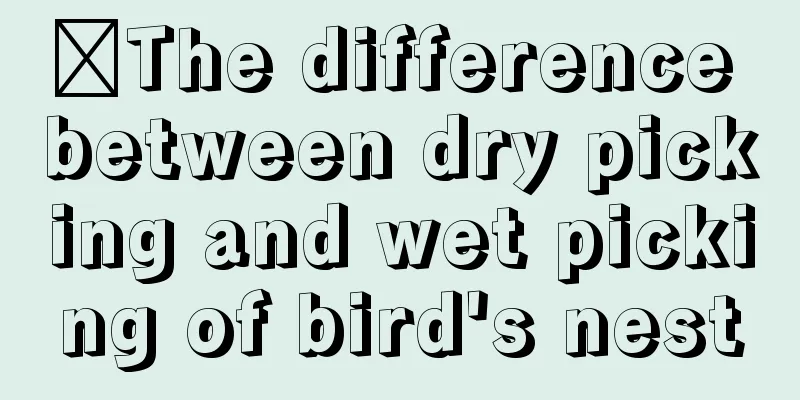Every food contains six types of nutrients

|
People eat not only to fill their stomachs, but also to replenish the nutrients they need. So most people will consider the nutrients contained in the food itself before eating, and basically, the nutrients contained in most foods are similar. In particular, there are six types of nutrients that are contained in every food. So what are the six types of nutrients that are contained in every food? Nutrients in food: The nutrients in food include three types of energy-supplying substances: carbohydrates, proteins, and fats, and water, and three types of non-energy-supplying substances: inorganic salts and vitamins. carbohydrate (1) Food sources: Cereals, beans, and root vegetables contain more sugars. (2) Function: Carbohydrates are the main energy source for the human body. All human activities, including walking, learning, breathing, etc., consume energy, and most of this energy is provided by carbohydrates. (3) Symptoms of deficiency: emaciation, fatigue, and hypoglycemia. Fat (1) Food sources: Foods such as lard, butter, egg yolk, peanut oil, sesame, beans and nuts contain more fat. (2) Function: Fat is also an important source of energy for the human body, but fat is generally stored in the body as a backup energy source. (3) Symptoms of deficiency: emaciation. protein (1) Food sources: milk, eggs, fish, lean meat, bean products, etc. (2) Function: ① The main organic substances that make up cells, such as proteins, are the main components of cell membranes and chromosomes. ② Energy substance. Protein can decompose and release energy, providing energy for the body's life activities. ③Human growth and development as well as the repair and renewal of damaged cells are inseparable from protein. (3) Symptoms of deficiency: Long-term insufficient supply can lead to malnutrition and anemia. water (1) Source: Food and beverages. (2) Function: ①One of the main components of human cells, accounting for 60% to 70% of body weight. ② Various life activities of the human body cannot be separated from water, and the cells in the human body live in a liquid environment. ③All nutrients and waste in the human body must be dissolved in water before they can be transported. Inorganic salt The content of inorganic salts in the human body is not large, accounting for about 4% of body weight. They are important raw materials for the human body. For example, calcium and phosphorus are important components of teeth and bones. Inorganic salts also participate in various metabolic activities of the human body and are an important guarantee for the normal growth and development of human life activities. Vitamins Vitamins are not the main raw materials for cells, do not provide energy for the human body, and the human body's daily need for them is very small. However, the important role of vitamins to the human body cannot be replaced by other nutrients. Once the human body lacks vitamins, it will affect normal growth and development, and even cause illness. |
<<: Do apples still have nutrition after being boiled in water?
>>: What is the reason for the headache
Recommend
How to prevent bladder cancer
Bladder cancer also has a relatively obvious fami...
What are the treatments for lung cancer? Introduction to three effective treatments for lung cancer
Nowadays, most people have the habit of smoking. ...
Common warts on fingers
Common warts are a relatively common disease and ...
Traditional Chinese medicine treatment for stage 3 breast cancer
The harmfulness of breast cancer cannot be ignore...
What is the best food for liver cancer patients? Dietary considerations for liver cancer ascites
What should liver cancer patients eat? When it co...
What is the function of boric acid
Boric acid is a weak acid. It is widely used in v...
How to prevent liver cancer to avoid the onset of liver cancer 7 liver cancer prevention methods to remember
1. Pay attention to drinking water safety. A. Som...
How to treat hand tremors in young people
Many young friends will find their hands shaking ...
Cost of interventional treatment for liver cancer
The cost of interventional treatment for liver ca...
What are the effects and functions of chrysanthemum pillow?
Chrysanthemum pillow is a common item and also a ...
What is the correct way to sterilize baby bottles?
Baby bottles are something that babies come into ...
The symptoms and treatment of laryngitis are like this
Laryngitis is a relatively common ENT disease tha...
What are the top ten foods that replenish qi and blood?
Nowadays, most people suffer from anemia, especia...
Complete guide to marinated fish
In life, many people prefer to eat pickled food, ...
There are blood stains on underwear in early pregnancy
Pregnancy is a relatively long process. Women sho...









